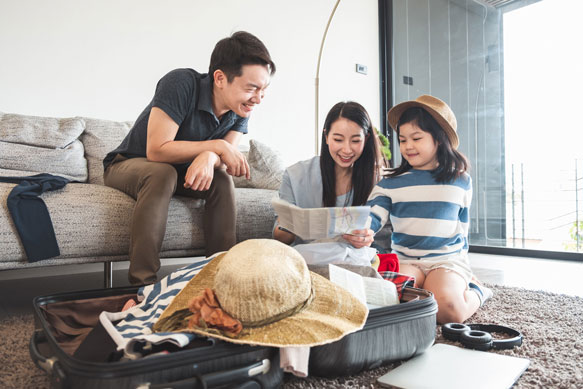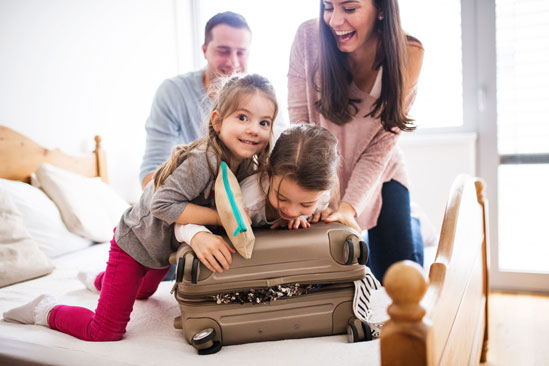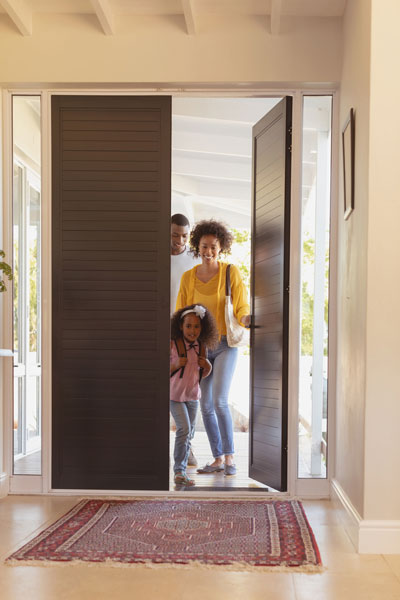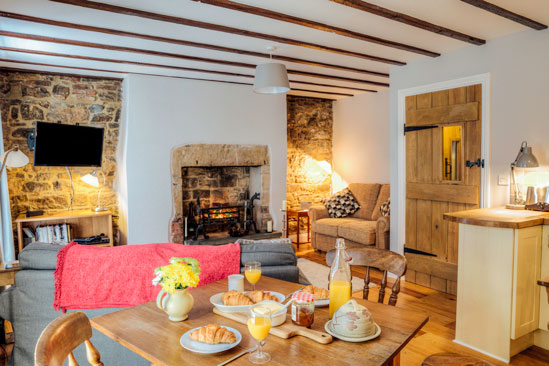Lots of people now rent out their own properties to make extra cash while they're away. Lisa Salmon finds out more
Many of us would love to make a bit of extra cash – but could you be sitting on an easy money-making opportunity right now? We’re talking about your own home.
Renting out your home, or just a room, can earn you anything from about £15 a night to more than £4,000 a month, depending on its size, location and facilities, and whether you’re just renting out a room or the whole property – and you don’t have to be a second-home-owner to do it. A number of people now rent out their homes while they’re away on holiday themselves, or rent out a room to travellers while they’re still there.

Your home doesn’t need to be in a typical tourist destination to be worth renting either: holiday rental companies like HomeAway.co.uk and Airbnb.co.uk point out that people may need somewhere to stay because of a family event nearby for example, or if they have business in a particular area and don’t want/can’t find a room in a hotel.
“Owning a property, whether a secondary home or the home you live in, is an opportunity to tap into an additional income channel,” says Karen Mullins, HomeAway regional director UK & Ireland. “Property owners are in an ideal position to make financial gains through short-term rentals. If you ensure you’re compliant with local laws and regulations, it’s a great opportunity to earn additional income to assist in paying off the mortgage, making home improvements, funding the children’s education or even funding your own holidays.”
Here, Mullins and Jeroen Merchiers, Airbnb’s Europe, Middle East and Africa regional director, answer some of the questions homeowners may have about offering some or all of their property as a holiday rental…

1. Does location matter – what if you don’t live in a tourist destination?
Mullins says: “If you’re the legal owner of the property, you’re able to rent it out to holidaymakers – even if it’s outside of popular tourist destinations. Holiday rentals provide holidaymakers with the opportunity to experience destinations and neighbourhoods they want to visit no matter what the occasion, for instance a family visit or a family event.
“If you’re near local amenities, either walking distance or a short drive, make it clear on your property page. Whether that’s local shops, restaurants, pubs or attractions, this will be very attractive to families who want to stay within the area. There are also families who are looking to escape the hustle and bustle of reality and enjoy the peace and quiet of a secluded area.”
Merchiers adds: “Guests booking on Airbnb are discovering more than the traditional tourist areas, thanks to locals opening up their homes and unique spaces, allowing people to travel in previously undiscovered areas.”

2. What facilities do you need to offer?
Hosts should check everyday appliances in the property – like the fridge, oven, microwave and kettle – are in good working order, clean and ready for use. Ensure there’s hot and cold running water, and provide basics like tea, coffee, sugar and store cupboard supplies, advises Mullins. She also suggests hosts should also consider leaving washing-up liquid, dishwasher tablets and toilet roll.
It’s also worth providing a welcome pack, including information like where to find extra towels, bedding and kitchen utensils, etc. “A welcome pack gives your home a personal touch,” says Mullins.
Impress guests further by including home comforts like TV subscriptions, and it won’t hurt to offer little extras like toys for kids, treats for pets, or a welcome gift for grown-ups like a bottle of wine. “You’ll make your guests’ stay extra-special and inspire them to leave a positive review,” Mullins points out.
“And make sure you have Wi-Fi – children, teenagers and parents will want to know they’re connected. And for parents, that could mean total sanity, relaxation and peace.”
In addition, Merchiers suggests hosts provide safety essentials such as a fire extinguisher, smoke alarm, first aid kit and a carbon-monoxide detector, as well as fundamental amenities. “These are the items guests tell us they consider important for a comfortable and safe stay,” he says.

3. How much money can you make?
Airbnb and HomeAway hosts set their own prices. Airbnb charge 3% commission, plus guests pay a service fee of up to 13% on top of their booking total. HomeAway charge 5% if hosts choose their pay-per-booking option, plus a 3% payment processing fee.
To help decide what price to set, hosts can search for comparable listings in their area, or use tools such as HomeAway’s online calculator (homeaway.co.uk/lyp), or Airbnb’s online calculator (airbnb.co.uk/host/homes) to help determine the going rate.
HomeAway data shows average nightly rates for full holiday home rental in the UK, for example, range from around £84-£500, and nightly rates for a private room rented through Airbnb range from around £15-£30.

4. What time period can you rent a room/house out for?
“Hosts manage their own calendar so they can host at times convenient to them,” explains Merchiers. “Some hosts list their space when they go on holiday, some when their children fly the nest, some ahead of major events in their area, and some for a little extra income.”

5. How do you protect valuable possessions in your home?
There are several options for how to store your valuables if you’re renting your home while you’re away, says Mullins, such as a lockable pantry, bedroom or cupboard.
“If you don’t want to do that, store them with family members close by or trustworthy neighbours,” she suggests. “Renting your house or flat while you’re away also helps to make the property less of a target for burglars, because your home isn’t empty for days or even weeks.”
6. What safeguards are there?
Before you rent your property to holidaymakers, make sure it’s not in breach of your lease or mortgage agreement. Airbnb and HomeAway provide hosts with up to $1 million USD (approx £768,000) of property damage protection and third party insurance to cover stays reserved through them.

